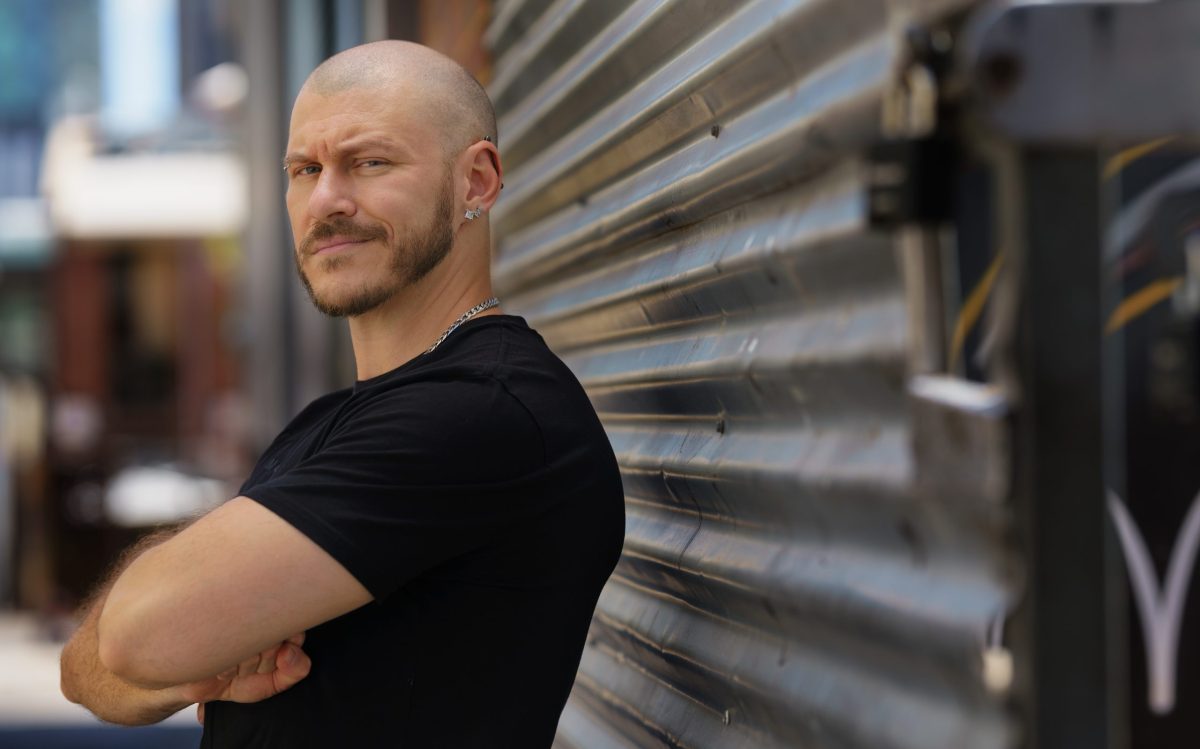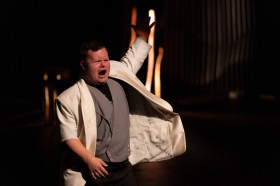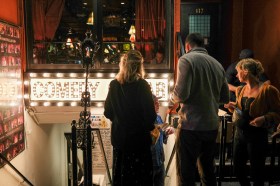I have never seen the Australian arts sector so united as in the wake of the Productivity Commission’s Harnessing data and digital technology report release on Tuesday night.
United in unadulterated seething rage, that is.
To put it mildly, everyone is absolutely fucking livid at the Productivity Commission – and with good reason. The proposed changes to copyright law would grant AI developers free rein to access and use copyrighted content for ‘training purposes’.
ArtsHub: ‘Creative theft’: arts and screen bodies respond to AI proposals in PC’s 2025 report
Australian artists have waited two years for the government to frankly do or say anything about the looming disaster of generative AI in the creative industries, which has been developed off large-scale theft of copyrighted works.
For two years, our sector has requested government help and intervention to combat this wave of piracy-driven AI slop that is threatening our industry and our livelihoods.
We might have expected that when we finally got a report like this it would contain some useful recommendations for how to navigate and regulate AI.
After all, a full-time Commissioner salary at the Productivity Commission is over $400,000 a year: you don’t get the big bucks without being able to bring some sharp, keen intellect and visionary strategy to the table, right?
Haha, I joke, I joke.
Instead of anything halfway intelligent, the Productivity Commission has publicly shat the bed.
They’ve put their wise and penetrating minds to work and come to a grand conclusion that boils down to: ‘Hey, wait, how good would it be for productivity if we ignore the Copyright Act and just steal everyone’s shit instead?’
Of course, they are referring to this proposal in corporate word salad and weasel words.
They are proposing a ‘text and data mining exception’ to Australia’s gold standard Copyright Act. This would enable every piece of copyrighted material in the country – every book, song, TV series, film, all of it – to be stolen without consent or compensation and used by big American tech companies to train generative AI models.
Australian artists and arts orgs have wasted no time in calling this what it actually is: a fancy way of referring to outright theft of copyrighted works.
Productivity Commission: productivity?
I mean, look, to give the Productivity Commission morally bankrupt credit where morally bankrupt credit is due, if we could all just steal anything we want without any consequences, it probably would be very good for productivity and profitability.
If I could just steal a schmick new laptop from JB Hi-Fi whenever I want to write a new book, and steal fuel from the servo whenever I need to drive to an author appearance at a library, by gosh, you’re right – it would be just dandy for my bottom line as a small business!
And if copyright doesn’t matter, why don’t I just steal someone else’s book and publish it as my own? Writing edgy gay bogan fiction doesn’t sell as much as crime or romance. Maybe I should just steal a crime author’s manuscript and profit off it myself – I mean, if copyright doesn’t matter anymore, then why not?
Why didn’t I think of this genius idea sooner? I guess it’s because I’m not on $400,000 a year! ASA surveys show the average author income in Australia is only around $18,000 a year (the median is closer to $3,000). We are paid the small bucks, presumably because we are plebs, unlike our intellectually gifted friends at the Productivity Commission.
It takes a proper big boy salary to come up with clever ideas like stealing.
Productivity Commission: theft is illegal
Of course, most of us learned back in Year 1 of primary school that stealing is wrong – a lesson the Productivity Commission appears to have forgotten.
But even if we don’t expect any ethics whatsoever from the Productivity Commission – and let’s face it, that amoral ship seems to have sailed here – theft is still illegal.
In matters of both physical and intellectual property, the law protects against theft; in the specific case of the latter, which is at play here, it is the Copyright Act in Australia that guards against the theft of creative works and IP.
The reason any artist or arts business can function and make a living in this country is due to our awesome Copyright Act. We can license use of our creative works in exchange for money. That’s how the entire arts and entertainment industry operates on a global scale.
Proposing to ignore copyright is not just anti-art and anti-artist, it is anti-business and anti an entire sector.
As Australian author and farmer Michael Trant drily put it on Instagram: it is like harvesting a farmer’s crops against his will, and telling him he won’t be paid a cent for it.
This simply wouldn’t fly in any other sector – and it won’t fly in ours, either.
The resounding furore from ARIA, MEAA, AWG, ASA and many other organisations and individuals who have come out swinging makes it clear nobody in Australia is having a bar of the Productivity Commission’s tone deaf attempt to trample all over the Copyright Act.
Readers, viewers, listeners – people who consume art and entertainment in this country – are also opposed.
Productivity Commission: read the room
Voters hate this, and the mood in the room makes it abundantly clear that this proposal is electoral poison. Any government who attempts to take it on board will face a tremendous voter backlash and can expect to not be in government for much longer.
The Federal Government has spent two years doing nothing about AI in the arts while simultaneously patting itself on the back for its national arts policy, REVIVE, and the recent creation of Writing Australia. But any goodwill the government has earned from the long-suffering arts sector will go up in a blaze of glory if they make any step towards accepting these suggestions on AI and copyright.
There will be no industry left to ‘revive’ if you take away the mechanism through which we generate revenue – simple as that.
Productivity Commission: what can we do?
What can we do? The Productivity Commission has invited submissions and feedback on their report. I encourage everyone to make a submission in staunch opposition to the report and make your feelings known. You can do so here.
In terms of my feedback? The Productivity Commission has embarrassed itself and the government with this unscrupulous proposal. They should delete the three-page-long defence of copyright theft from their report. Simple as that. Delete this insulting and disgusting proposal immediately, and never try to bring it up with Australians again. We don’t want it and nobody’s buying what you’re selling.
Get your hands off our copyrighted materials and get your hands off the Copyright Act.
We also deserve a proper statement from the Federal Government that makes it clear this proposal will not be accepted in any way.
Not Anthony Albanese’s wishy-washy non-committal vagueness or Jim Chalmers’ milquetoast ‘we have no plans at this stage‘ fence-sitting.
A proper, clear and unequivocal statement from the Federal Government that says plainly, with no weaselling, that this part of the report will be rejected and will never be implemented, and that the Copyright Act and its protections for Australian artists will remain upheld.
And if they’re not willing to say that, we will have to ask, loudly: why not?
Holden Sheppard’s latest novel is King Of Dirt. Discover more screen, games & arts news and reviews on ScreenHub and ArtsHub. Sign up for our free ArtsHub and ScreenHub newsletters.






